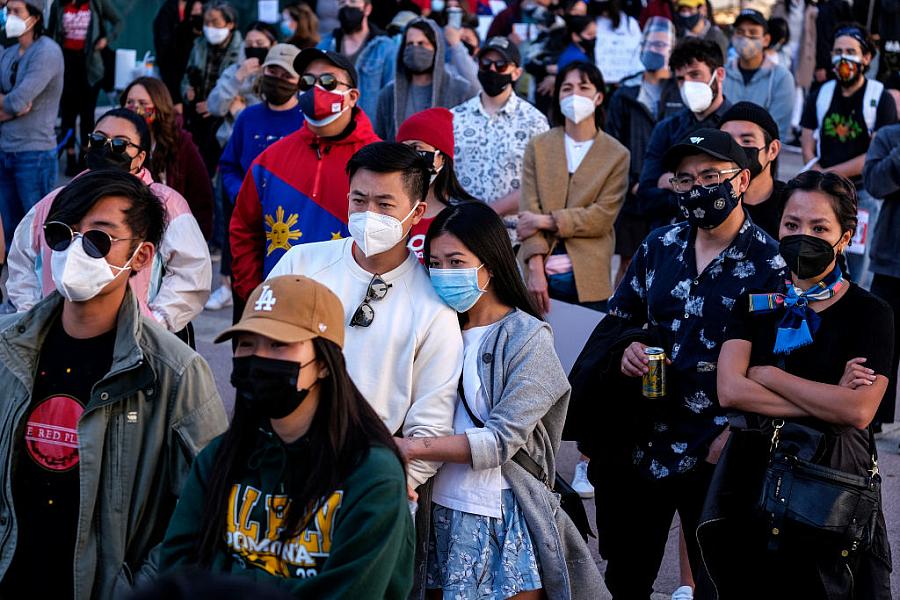With anti-Asian sentiment on the rise, journalists have a role to play

A rally against anti-Asian violence in Little Tokyo in Los Angeles on March 13.
(Photo by Ringo Chiu/AFP via Getty Images)
Editor's Note: This column has been updated to reflect emerging news on the killings in Atlanta.
Anti-Asian violence is on the rise in America. Here at the Center for Health Journalism, we are committed to advancing journalism that supports Asian American and Pacific Islander community members and their stories and we condemn the hatred and racism that have emerged with such terrible force during the pandemic.
Yesterday we learned that a murderer unleashed a violent rampage at three businesses in Atlanta, killing eight people. Six of the eight were Asian and all but one were women. “We're still learning about the motive,” Melissa Borja, a scholar of Asian Pacific Islander American studies and migration at the University of Michigan, wrote on Twitter the night of the killings. “However, you should know this: most racist attacks against Asian Americans this past year have targeted women, and Asian American women are on edge.”
According to police accounts that emerged as the case unfolded, the gunman said that he had not targeted the victims based on their race and police appear to be moving away from classifying this as a hate crime. But that quick characterization came under criticism from feminists and Asian American activists as dismissive of what they saw as both a violent act of racism and misogyny. What's undisputed is that the brutal rampage deepens a profound unease in the Asian American community about the alarming and growing number of incidents of hostility and violence directed at them.
"Right now there is a great deal of fear and pain in the Asian American community that must be addressed," said “Stop AAPI Hate,” a new organization devoted to combatting anti-Asian hate crimes.
Earlier this week, “Stop AAPI Hate” reported 3,795 incidents received by the Stop AAPI Hate reporting center from March 19, 2020 to February 28, 2021. These hate incidents represent only a fraction of the number of incidents that actually occurred, according to the organization. Asian women are reporting hate incidents at more than double the rate of men, with Chinese community members as the largest group experiencing hate incidents. Incidents range from shunning and humiliating verbal assaults to physical assaults and civil rights violations.
Stop AAPI Hate itself was born of the pandemic and the racism that surged in the wake of the pandemic when U.S. leaders blamed China for the coronavirus because of the original outbreak in Wuhan. The organization described former President Donald Trump as the most influential “superspreader” of anti-Asian racism.
Journalists have an obligation to help build a better nation by rooting out hatred and racism against all people of color and to help to strengthen the bonds that can bring us together. We must call attention to incidents of hatred and violence but also be sure to shine a light on how communities and individuals can rally and come together to prevent discrimination and hate crimes. The health of our communities depends upon it.

